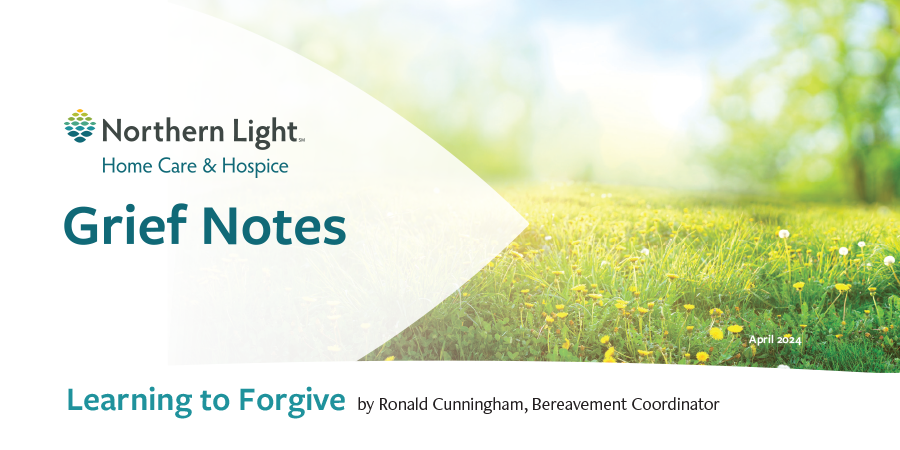LATEST NEWS
We are all just walking each other home. - Ram Dass
LATEST NEWS
We are all just walking each other home. - Ram Dass

Death is so finite and it often comes without warning. We do not always have the opportunity to say goodbye or to deal with unresolved conflict or unfinished business. Feelings of anger, resentment, bitterness, and guilt can perpetuate our suffering, making it quite difficult to move on with our lives. We cannot find true peace as long as we are holding onto grudges and are unable to forgive.
Feeling anger towards a deceased person is common, and there are many reasons why that anger may feel justified. Perhaps you are angry that your loved one didn't take care of themselves like you think they should have, or maybe you feel like they didn't fight hard enough. Maybe they put themselves in harm's way or perhaps they've said or done hurtful things in the past. Avoiding dealing with unresolved issues can lead to pain and heartbreak. An inability or unwillingness to forgive can lead to bitterness, anger, and resentment.
What exactly is forgiveness? We've all heard the familiar and overly simple mantra “forgive and forget.” Forgiveness is not excusing the wrong that has been done to you. It is not just saying the words, “I forgive you.” Is it simply being willing to forfeit your right to resent or judge another person who unfairly hurt you? Is it practicing compassion and love toward that person despite their behavior?
Forgiveness is a choice. It is being able to recognize that you have the right to be upset, but instead of focusing on the negative feelings, you make the purposeful decision to let them go, whether the person deserves it or not. Forgiveness is not only an important part of the healing process. It can also provide benefits for your mental and physical health. Studies show that forgiveness and letting go of negativity in general can reduce anxiety and stress levels, lower blood pressure, provide a better immune system, reduce symptoms of depression, improve sleep and cholesterol levels, and even reduce pain.
What can we do when we have lost a loved one and are forced to realize that we will never be able to get a response from them? Try writing a letter to your loved one, telling them what you wish you could say to them. Speak out loud or have an imaginary conversation, or find a family member, friend, or your Northern Light bereavement coordinator to talk to. Another thing you can do is to look inward and seek self-forgiveness. Recognize that you are only human. We all make mistakes and sometimes it is ourselves we need to forgive. Beating ourselves up about it won't change the past, but it can significantly impact our future.
Loss is often sudden and startling, but time really does heal wounds. No one said forgiveness is easy, but with time, you can learn to forgive others and yourself. Do not let resentment and anger define you. Instead, choose to let forgiveness refine you.